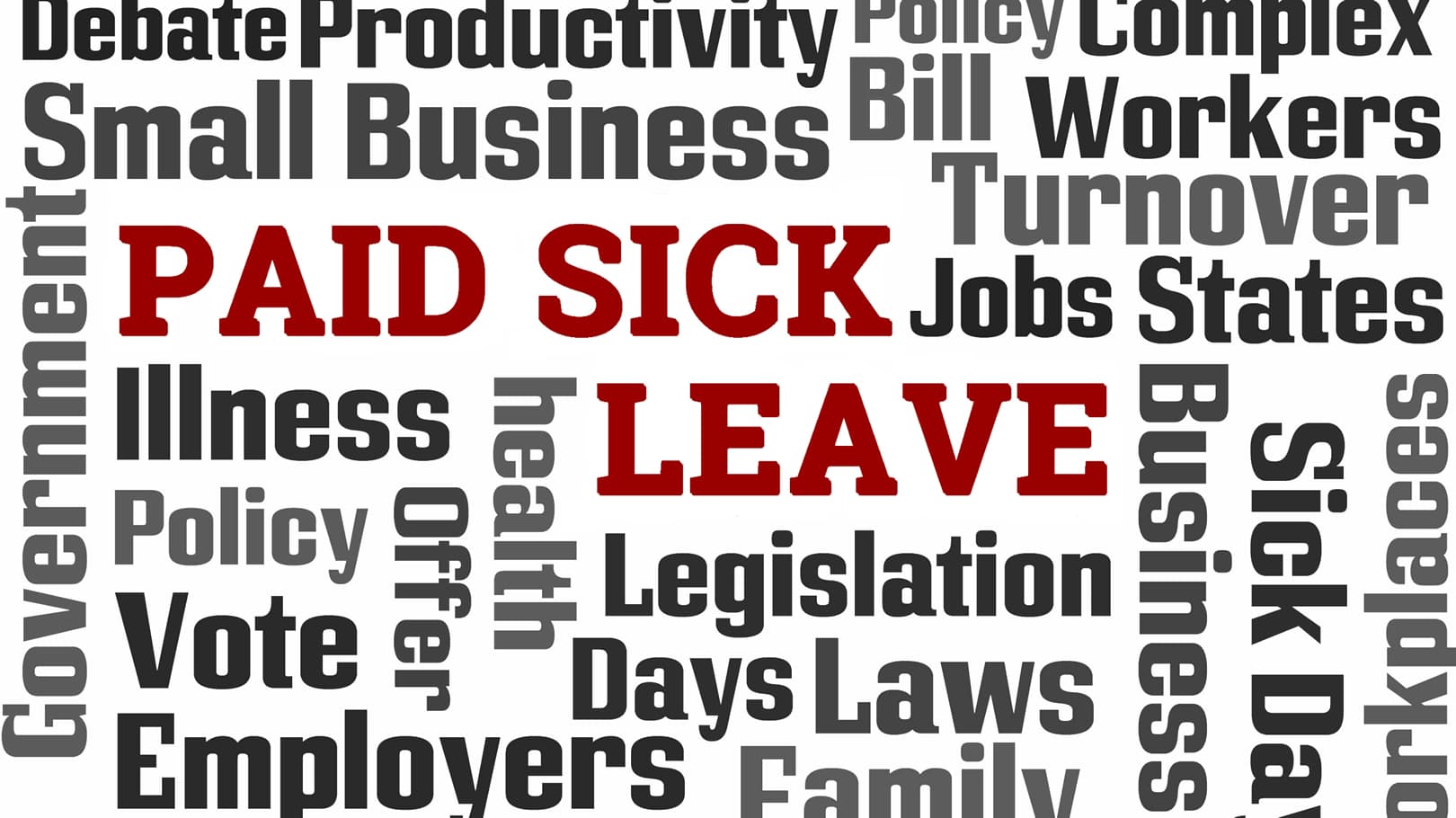Arizona Prop 206: 6 Tips for Employers
Never underestimate the power of your company policies to influence employee behavior. By detailing for employees how your company will respond to certain situations and circumstances, you inadvertently manage their expectations and behaviors. The behaviors you need are those that enable you to continue to operate in a productive and cost-efficient manner.
When it comes to influencing employee behavior, two of the most powerful tools available to employers are rewards and benefits. In distinguishing the difference:
- A BENEFIT is: An advantage, help, or aid from something such as income delivered through a disability policy.
- A REWARD is: Something of value given in return for an act such as Paid Time Off (PTO).
Sick leave was intended as a benefit. It was designed to aid employees who must take time from work to address certain eligible, personal or medical events.
For many Arizona employers who prior to now had no formal sick leave policy, the requirement to allow employees to both accrue and use earned sick leave under Proposition 206 poses a number of challenges. However your policies are your opportunity to produce the outcome(s) you want. Often companies have more control over outcomes than they realize.
In developing a policy that will produce the employee behaviors you desire most, ask yourself questions such as:
- Will paying out unused sick time as a reward at the end of each year reduce opportunities for policy abuse and result in better attendance by employees?
- By allowing sick leave to fall under our existing PTO policy are we creating an entitlement mentality amongst employees who may not otherwise have used sick leave?
- If we choose to not pay out unused sick leave at the end of the year, what outcome will we see in terms of increased utilization? How will that translate in terms of cost and/or lost productivity for the company?
- If we design, implement and communicate a true sick leave policy, requiring supporting documentation after 3 days absence, are we deterring potential abuse and increased absenteeism?
- What does each scenario mean for the company in terms of added administration? Does it outweigh the cost of policy abuse, increased absenteeism or similar potential problems?
- What are the opportunities for the company when it comes to designing our policy?
6 Tips for Developing Your Sick Leave Policy
- Review and evaluate your employee leave policy, including sick leave, vacation personal days and holidays. Ensure personal leave and sick time policy wording is updated in your employee handbook and that accrual rates are equal to or better than those required under Proposition 206. Download free employee leave process audit checklist.
- Know and understand your employer rights when it comes to requesting supporting medical documentation.
- Review the process by which employees request leave, including a review of any leave request forms currently being used.
- Create a process for formally requesting sick time.
- Create a process for coordination with other disability and/or FMLA programs.
- Perform ongoing review of your policies and update accordingly.
Sick leave accrual under Proposition 206 doesn’t have to wreak havoc for your organization. Often what is easiest in terms of internal administration can create problems somewhere else if you haven’t considered all of the potential outcomes. Just remember that for every action there is a reaction. Keep that in mind when designing your policies and procedures and you will minimize the opportunity for unpleasant surprises.
For assistance in designing or updating your sick leave policy, process, related employee request forms or any other general questions related to Arizona’s Proposition 206, contact me at jmorrow@employerbenefitsandadvice.com.

